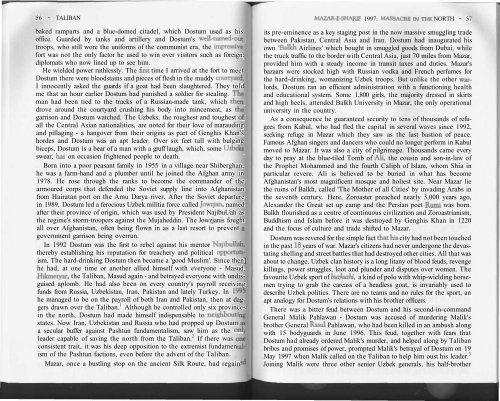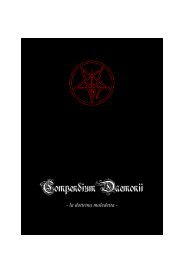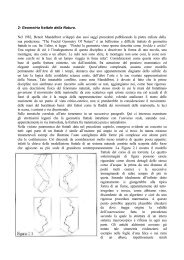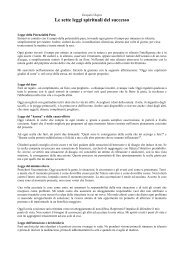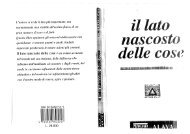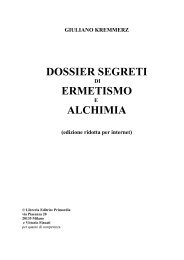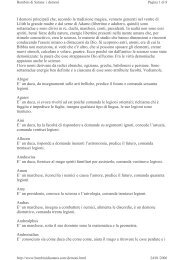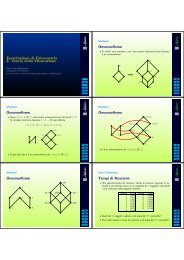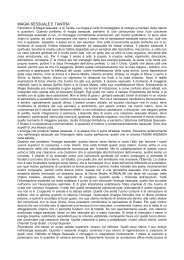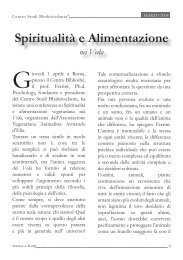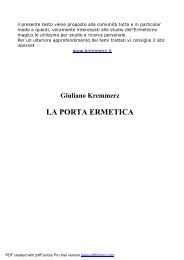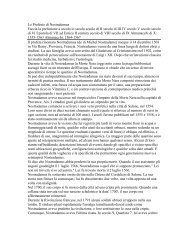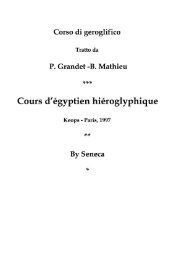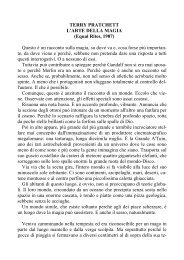56 ~ TALIBANbaked ramparts and a blue-domed citadel, which Dostum used as hisoffice. Guarded by tanks and artillery and Dostum's well'tumed-out]troops, who still wore the uniforms of the communist era, the impressive!fort was not the only factor he used to win over visitors such as foreign;diplomats who now lined up to see him.He wielded power ruthlessly. The first time I arrived at the fort to meetDostum there were bloodstains and pieces of flesh in the muddy courtyardjI innocently asked the guards if a goat had been slaughtered. They toldme that an hour earlier Dostum had punished a soldier for stealing. Thejman had been tied to the tracks of a Russian-made tank, which then]drove around the courtyard crushing his body into mincemeat, as th«|garrison and Dostum watched. The Uzbeks, the roughest and toughest ofall the Central Asian nationalities, are noted for their love of maraudingand pillaging - a hangover from their origins as part of Genghis Khan'shordes and Dostum was an apt leader. Over six feet tall with bulgingbiceps, Dostum is a bear of a man with a gruff laugh, which, some Uzbek^swear, has on occasion frightened people to death.Born into a poor peasant family in 1955 in a village near Shiberghan,he was a farm-hand and a plumber until he joined the Afghan army in1978. He rose through the ranks to become the commander of thearmoured corps that defended the Soviet supply line into Afghanistanfrom Hairatan port on the Amu Darya river. After the Soviet departurein 1989, Dostum led a ferocious Uzbek militia force called Jowzjan, namedafter their province of origin, which was used by President NajibuUah asthe regime's storm-troopers against the Mujaheddin. The Jowzjanis foughtall over Afghanistan, often being flown in as a last resort to preventgovernment garrison being overrun.In 1992 Dostum was the first to rebel against his mentor NajibuUah,thereby establishing his reputation for treachery and political opportuneism. The hard-drinking Dostum then became a 'good Muslim'. Since then]he had, at one time or another allied himself with everyone - Masud,Hikmetyar, the Taliban, Masud again - and betrayed everyone with undisguisedaplomb. He had also been on every country's payroll receivingfunds from Russia, Uzbekistan, Iran, Pakistan and lately Turkey. In 1995he managed to be on the payroll of both Iran and Pakistan, then at daggersdrawn over the Taliban. 1 Although he controlled only six provincesin the north, Dostum had made himself indispensable to neighbour!states. Now Iran, Uzbekistan and Russia who had propped up Dostuma secular buffer against Pashtun fundamentalism, saw him as the onlleader capable of saving the north from the Taliban. 2 If there wasconsistent trait, it was his deep opposition to the extremist fundamenism of the Pashtun factions, even before the advent of the Taliban.Mazar, once a bustling stop on the ancient Silk Route, had regainMAZAR-E-SHARIF 1997: MASSACRE IN THE NORTH ~ 57its pre-eminence as a key staging post in the now massive smuggling tradebetween Pakistan, Central Asia and Iran. Dostum had inaugurated hisown 'Balkh Airlines' which bought in smuggled goods from Dubai, whilethe truck traffic to the border with Central Asia, just 70 miles from Mazar,provided him with a steady income in transit taxes and duties. Mazar'sbazaars were stocked high with Russian vodka and French perfumes forthe hard-drinking, womanizing Uzbek troops. But unlike the other warlords,Dostum ran an efficient administration with a functioning healthand educational system. Some 1,800 girls, the majority dressed in skirtsand high heels, attended Balkh <strong>University</strong> in Mazar, the only operationaluniversity in the country.As a consequence he guaranteed security to tens of thousands of refugeesfrom Kabul, who had fled the capital in several waves since 1992,seeking refuge in Mazar which they saw as the last bastion of peace.Famous Afghan singers and dancers who could no longer perform in Kabulmoved to Mazar. It was also a city of pilgrimage. Thousands came everyday to pray at the blue-tiled Tomb of Ali, the cousin and son-in-law ofthe Prophet Mohammed and the fourth Caliph of Islam, whom Shia inparticular revere. Ali is believed to be buried in what has becomeAfghanistan's most magnificent mosque and holiest site. Near Mazar liethe ruins of Balkh, called 'The Mother of all Cities' by invading Arabs inthe seventh century. Here, Zoroaster preached nearly 3,000 years ago,Alexander the Great set up camp and the Persian poet Rumi was born.Balkh flourished as a centre of continuous civilization and Zoroastrianism,Buddhism and Islam before it was destroyed by Genghis Khan in 1220and the focus of culture and trade shifted to Mazar.Dostum was revered for the simple fact that his city had not been touchedin the past 18 years of war. Mazar's citizens had never undergone the devastatingshelling and street battles that had destroyed other cities. All that wasabout to change. Uzbek clan history is a long litany of blood feuds, revengekillings, power struggles, loot and plunder and disputes over women. Thefavourite Uzbek sport of buzkushi, a kind of polo with whip-wielding horsementrying to grab the carcass of a headless goat, is invariably used todescribe Uzbek politics. There are no teams and no rules for the sport, anapt analogy for Dostum's relations with his brother officers.There was a bitter feud between Dostum and his second-in-commandGeneral Malik Pahlawan - Dostum was accused of murdering Malik'sbrother General Rasul Pahlawan, who had been killed in an ambush alongwith 15 bodyguards in June 1996. This feud, together with fears thatDostum had already ordered Malik's murder, and helped along by Talibanbribes and promises of power, prompted Malik's betrayal of Dostum on 19May 1997 when Malik called on the Taliban to help him oust his leader. 3Joining Malik were three other senior Uzbek generals, his half-brother
58 TALIBANGul Mohammed Pahlawan, Ghafar Pahlawan and Majid Rouzi. Moreover,Dostum had not paid his troops for five months and there was unrest inthe ranks.The Taliban moved north swiftly from Herat and Kabul. As the northernprovinces fell one after another to this unlikely alliance of Pashtunsand Uzbeks from Malik's power base in Faryab province, Dostum fled with ;135 officers and men, first to Uzbekistan and then to Turkey. On the wayto Termez on the Uzbekistan-Afghanistan border, Dostum had to bribehis own soldiers with US dollars to let his convoy pass. For the Talibanit was a God-sent opportunity, but they had learnt little from their conquestof other cities, where they refused to share power, remained politicallyinflexible and would not relax Sharia law in the light of ethnic sensibilities.If Malik thought that the Taliban would give him the kind ofautonomy in the north enjoyed by Dostum since 1992, he was badly mistaken.It was a deal made in hell that unravelled by the hour.When 2,500 heavily armed Taliban troops rolled into Mazar in theirpick-ups under Mullah Abdul Razaq (the man who had ordered Najibullah'smurder), they declined to share power with Malik and offered him|the insignificant post of Deputy Foreign Minister in the Kabul govern-i?ment. The Taliban, the majority of whom had never been in the northbefore, arrogantly started disarming the fierce Uzbek and Hazara troops*took over the mosques from where they declared the imposition of Sharialaw, shut down schools and the university and drove women off thestreets. It was a recipe for disaster in a city where a complex mix of ethnicand religious groups lived and which had remained the most open andliberal in the country.Pakistani diplomats and ISI officers flew into the city in a bid to helpthe Taliban renegotiate the terms of the agreement, which was alreadyfalling apart. Islamabad then aggravated the situation further by prema-iturely recognizing the Taliban as the legitimate government of Afghanis-Btan and persuading Saudi Arabia and the United Arab Emirates to followsuit. 4 The Uzbeks had been led to believe that this was a power-shariragreement and now they realized it was a Taliban takeover. Malikcaught in the middle and his betrayal of Dostum was made worse whehe also handed over Ismael Khan to them, who had been fighting ithe Taliban in Faryab. 5On the afternoon of 28 May 1997, a squabble broke out as a group iHazaras resisted being disarmed. Then all hell broke loose. First Mazar'^Hazaras and then the rest of the population rose in revolt. Untrained illjstreet fighting and not knowing the maze of city alleyways, the Talibwere easy victims as they drove their pick-ups into dead ends, trying toescape the withering fire from houses and roof tops. In 15 hours of intensefighting some 600 Taliban were massacred in the streets and over 1,CMAZAR-E-SHARIF 1997: MASSACRE IN THE NORTH ~ 59were captured at the airport as they tried to flee. Ten top Taliban politicaland military leaders were either killed or captured. Those capturedincluded Foreign Minister Mullah Mohammed Ghaus, Mullah Razaq andCentral Bank Governor Mullah Ehsanullah. Malik's men promptly startedlooting the city, including the offices of UN agencies, and forced the UNto abandon the city. Dozens of Pakistani students were also killed.Malik's troops swiftly retook four northern provinces (Takhar, Faryab,Jowzjan and Sari Pul), which the Taliban had captured only five daysearlier and there was heavy fighting for control of three other northernprovinces (Balkh, Samangan and Kunduz). With their escape routesclosed, thousands of Taliban troops and hundreds of Pakistani studentswere captured and subsequently shot dead and buried in mass graves. Inthe south, Masud seized the opportunity to launch his own counter-attack,once again capturing Jabal ul Seraj at the southern entrance of the Salangtunnel. He blew up the entrance of the tunnel, trapping the Taliban whowere still in the north and were trying to escape down the road to Kabul.Masud recaptured more territory around Kabul and several towns innorth-eastern Afghanistan that had fallen to the Taliban just a weekearlier. Hundreds more Taliban were either killed or captured. Meanwhilethe Hazaras, spurred on by the Mazar victory also counter-attacked,breaking the nine-month Taliban siege of their homeland, the Hazarajat.Taliban forces at the entrance to the Bamiyan valley were pushed backand Khalili's forces moved south towards Kabul, forcing thousands ofPashtun villagers to flee to the capital.It was the worst ever Taliban defeat since they had emerged just 30months earlier to conquer the country. In ten weeks of fighting betweenMay and July the Taliban suffered over 3,000 casualties, killed orwounded, and some 3,600 men were taken prisoner. 6 More than 7,000troops and civilians were wounded on both sides according to the ICRC.Even more embarrassing for Islamabad, over 250 Pakistanis had beenkilled and 550 captured during the May-July period. Morale amongst theTaliban plummeted as they had also lost some of their best and mostexperienced front-line units.Mullah Omar gave an urgent call for students in Pakistan to come andhelp the Taliban. Once again Pakistani madrassas were closed down as5,000 new recruits - both Pakistani and Afghan - arrived to enlist withthe Taliban. The situation for the Taliban was deemed so serious thateven the reclusive Mullah Omar was forced to leave his sanctuary inKandahar and visit Kabul for the first time to meet his commanders andraise morale amongst his troops.The Taliban were also forced to recruit increasing manpower from theGhilzai Pashtun tribes of eastern Afghanistan and Pakistan. But theydemanded a political price which the Taliban were not prepared to pay.
- Page 1 and 2: YALE NOTA BENE"The broader storyher
- Page 3 and 4: TalibanMilitant Islam,Oil and Funda
- Page 5 and 6: Vi ~ CONTENTSChapter 8A Vanished Ge
- Page 7 and 8: AFGHANISTAN•^ UZBEKISTAN J TAJIKI
- Page 9 and 10: 2 ~ TALIBANaccounts for some 40 per
- Page 11 and 12: "6 ~ TALIBANgas riches of landlocke
- Page 13 and 14: 10 ~ TALIBANgious mix that was to m
- Page 15 and 16: Part 1History of theTaliban Movemen
- Page 17 and 18: 18 ~ ISLAM OIL AND THE NEW GREAT GA
- Page 19 and 20: 22 ~ ISLAM OIL AND THE NEW GREAT GA
- Page 21 and 22: 26 ~ ISLAM OIL AND THE NEW GREAT GA
- Page 23 and 24: 30 ~ ISLAM OIL AND THE NEW GREAT GA
- Page 25 and 26: 34 TALIBANKabul- Hikmetyar had alli
- Page 27 and 28: 38 ~ TALIBANrHERAT 1995: GOD'S INVI
- Page 29 and 30: 42 ~ TALIBANdo manage to take Kabul
- Page 31 and 32: J46 ~ TALIBANgreater weight to UN e
- Page 33 and 34: 50 ~ TALIBANas they hung from steel
- Page 35: 54 ~ TALIBANthey would help rearm t
- Page 39 and 40: 62 TALIBAN2,500 Taliban, who had re
- Page 41 and 42: 66 TALIBANshould throw all aid agen
- Page 43 and 44: 70 ~ TALIBANyears of battle and hel
- Page 45 and 46: 74 ~ TALIBANThousands of Hazaras we
- Page 47 and 48: 78 TALIBANhas become a plague,' sai
- Page 49 and 50: NEW STYLE FUNDAMENTALISM OF THE TAL
- Page 51 and 52: 86 TALIBANsity students - Hikmetyar
- Page 53 and 54: 90 TALIBANSharia was heavily influe
- Page 55 and 56: 94 TALIBANinflamed the debate in th
- Page 57 and 58: 98 TALIBANizing factor of Islam, it
- Page 59 and 60: 102 TALIBANadministrations made the
- Page 61 and 62: 106 ~ TAUBANfrom working, but it no
- Page 63 and 64: TALIBANUniversity, she held down a
- Page 65 and 66: 114 TALIBAN A VANISHED GENDER 115Ta
- Page 67 and 68: 118 TALIBANUS$1,300 - a small fortu
- Page 69 and 70: 122 TALIBANper cent of the total Pa
- Page 71 and 72: 126 TALIBANequipment, no electricit
- Page 73 and 74: 130 ~ TALIBANfight with the Mujahed
- Page 75 and 76: 134TALIBANAugust 1996 noted that Bi
- Page 77 and 78: 138 ~ TALIBANwho were using the Kho
- Page 79 and 80: 11DICTATORS AND OILBARONS: THE TALI
- Page 81 and 82: 146 TALIBAN DICTATORS AND OIL BARON
- Page 83 and 84: 150 — TALIBANgrowth of beards and
- Page 85 and 86: 154TALIBAN1998 when international o
- Page 87 and 88:
158 ~ TALIBANaround Afghanistan? Af
- Page 89 and 90:
162 TALIBAN ROMANCING THE TALIBAN 1
- Page 91 and 92:
166 TALIBAN ROMANCING THE TALIBAN 1
- Page 93 and 94:
ROMANCING THE TALIBAN 2: 1997-99 17
- Page 95 and 96:
174 — TALIBANnon-Russian pipeline
- Page 97 and 98:
178 — TALIBANROMANCING THE TALIBA
- Page 99 and 100:
182 ~ TALIBANApril 1999. 'The US ha
- Page 101 and 102:
186 ~ TALIBANters or the transport
- Page 103 and 104:
190 ~ TALIBANThis Wild West of free
- Page 105 and 106:
194 ~ TALIBANgovernance. Pakistani
- Page 107 and 108:
198 TALIBAN SHIA VERSUS SUNNI: IRAN
- Page 109 and 110:
202 TALIBAN SHIA VERSUS SUNNI: IRAN
- Page 111 and 112:
206 — TALIBANin Afghanistan - to
- Page 113 and 114:
210 — TALIBANand antagonism. The
- Page 115 and 116:
214 ~ TALIBANdrawn since 1996 - a P
- Page 117 and 118:
218 ~ TALIBANated and severely puni
- Page 119 and 120:
Origins of Members of the Taliban M
- Page 121 and 122:
APPENDIX 3 ~ 227Appendix 3A CHRONOL
- Page 123 and 124:
230 ~ TALIBANgraves near Shebarghan
- Page 125 and 126:
234 ~ TALIBAN8 June. US FBI places
- Page 127 and 128:
238 ~ TALIBAN1995 January16 MarchAp
- Page 129 and 130:
242 ~ TALIBANJune21 August10 Septem
- Page 131 and 132:
246 ~ TALIBANDupree, Nancy Hatch, A
- Page 133 and 134:
250 ~ NOTESChapter 31 Interview wit
- Page 135 and 136:
254 ~ NOTESmuddin, Religious Police
- Page 137 and 138:
258 NOTES13. The Japanese company M
- Page 139 and 140:
262 ~ NOTES28. Waxman, Sharon, 'A c
- Page 141 and 142:
Abbas, Mulla Mohammed 22,61,100Abda
- Page 143 and 144:
INDEX - 270Hazaras (continued)burea
- Page 145 and 146:
INDEX ~ 274nF»r\/FaliViar» milita
- Page 147:
INDEX ~ 278Talibans (continued)Sunn


